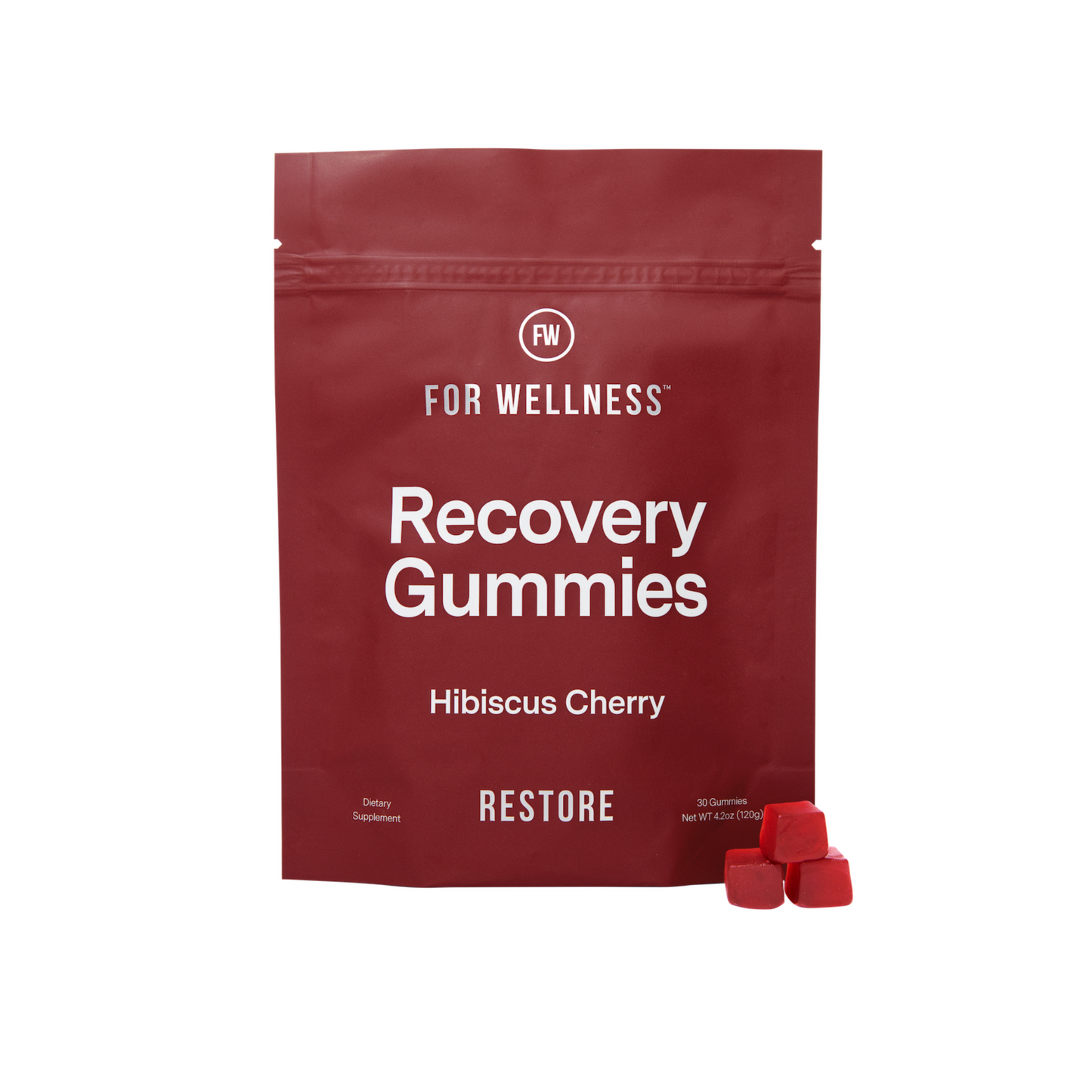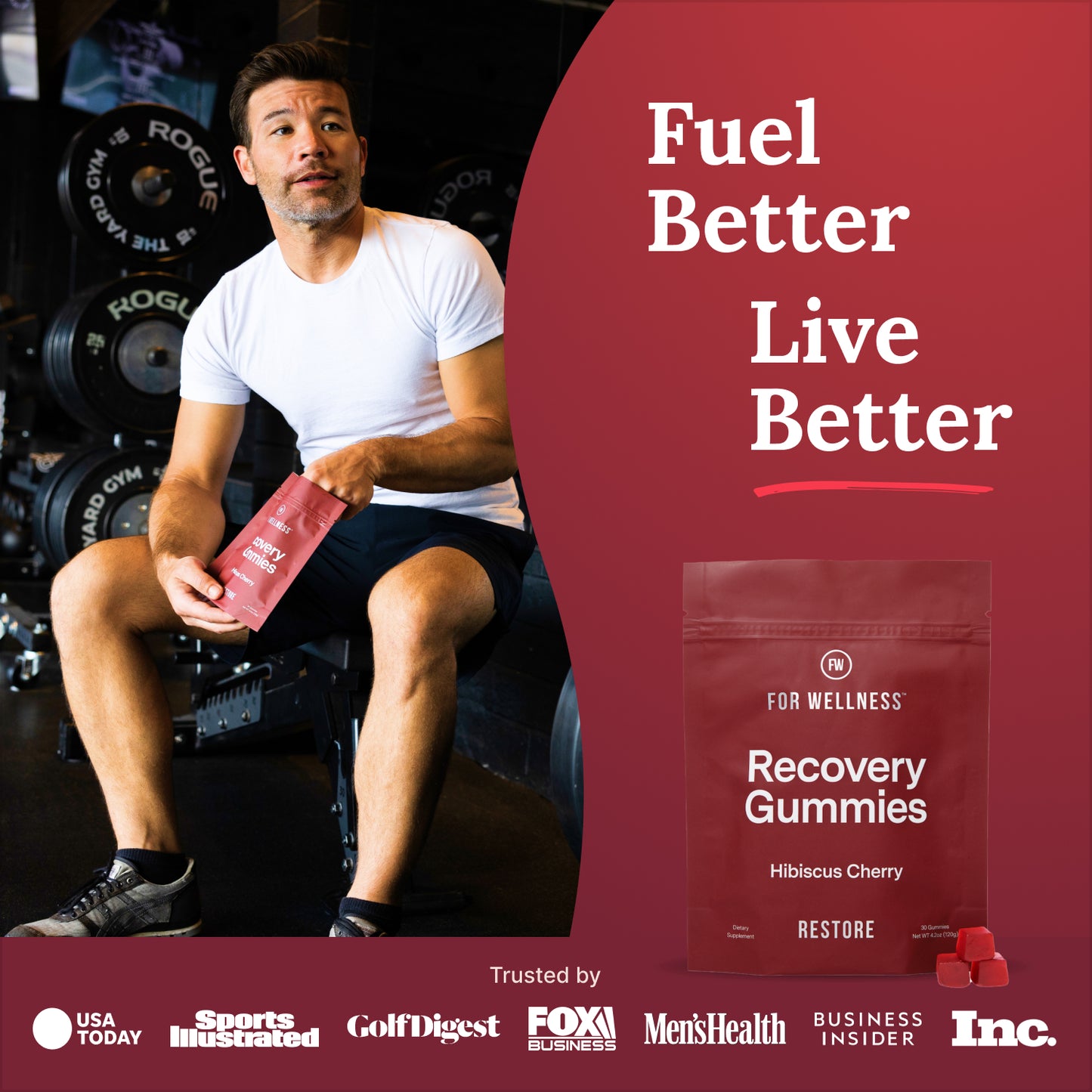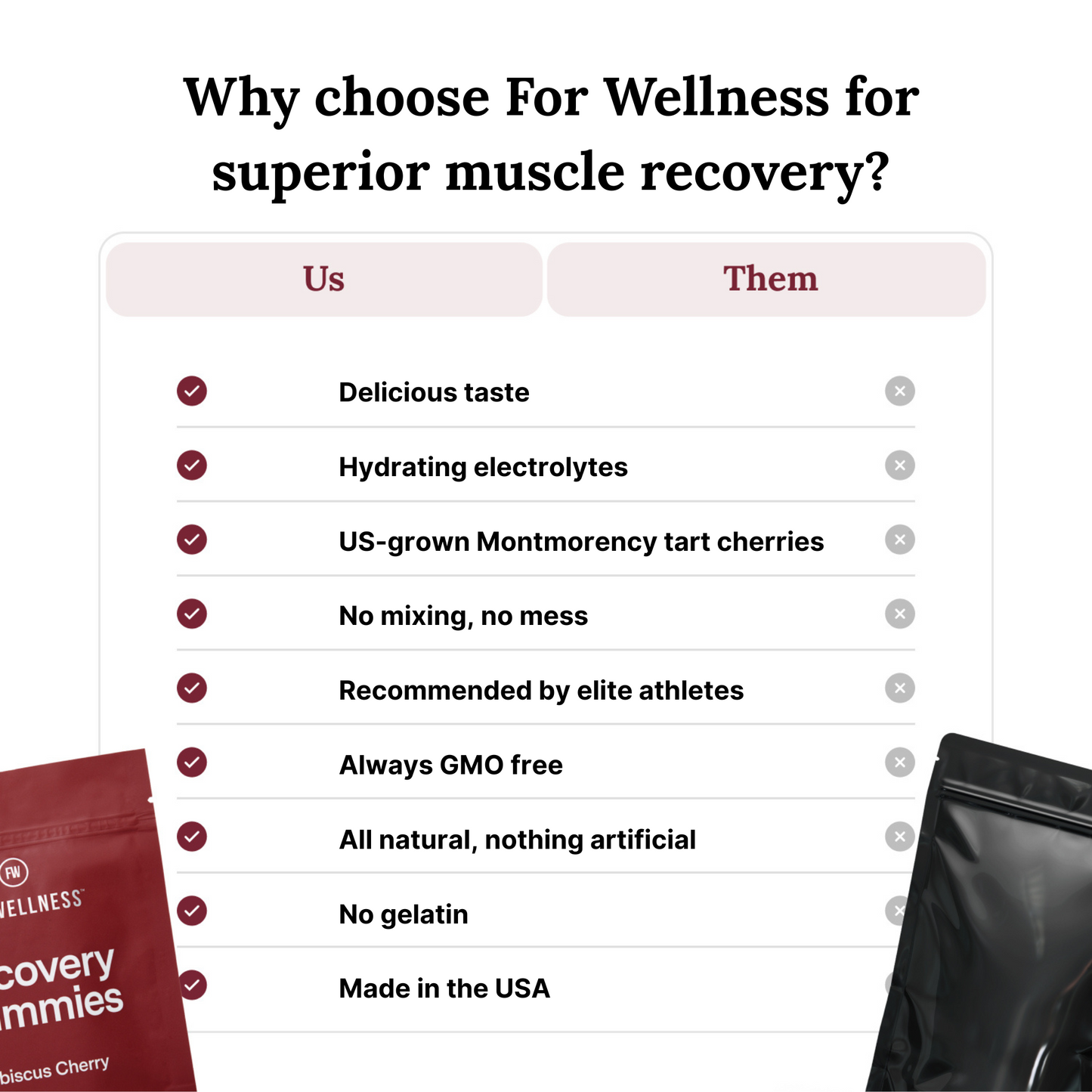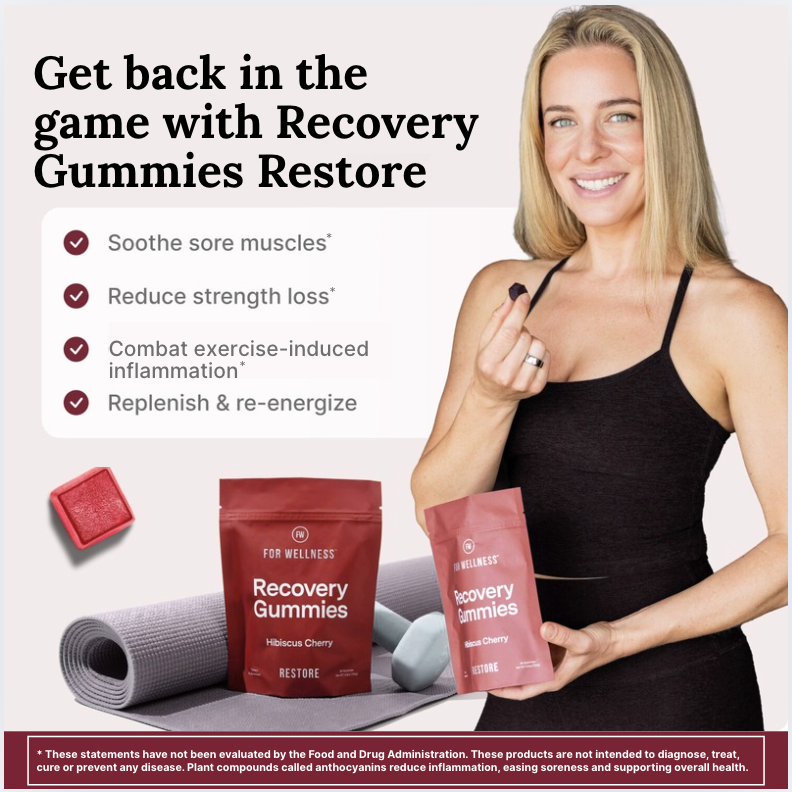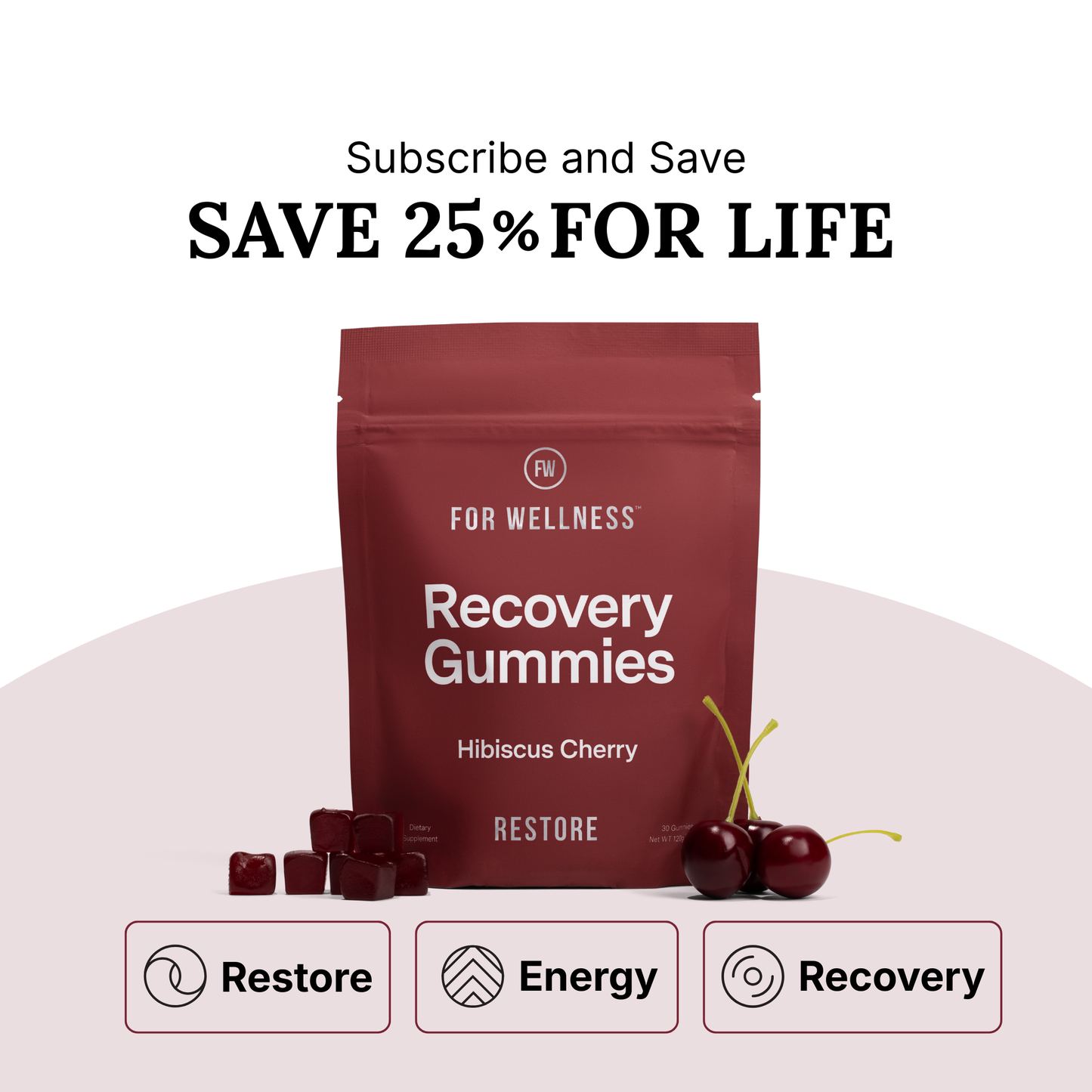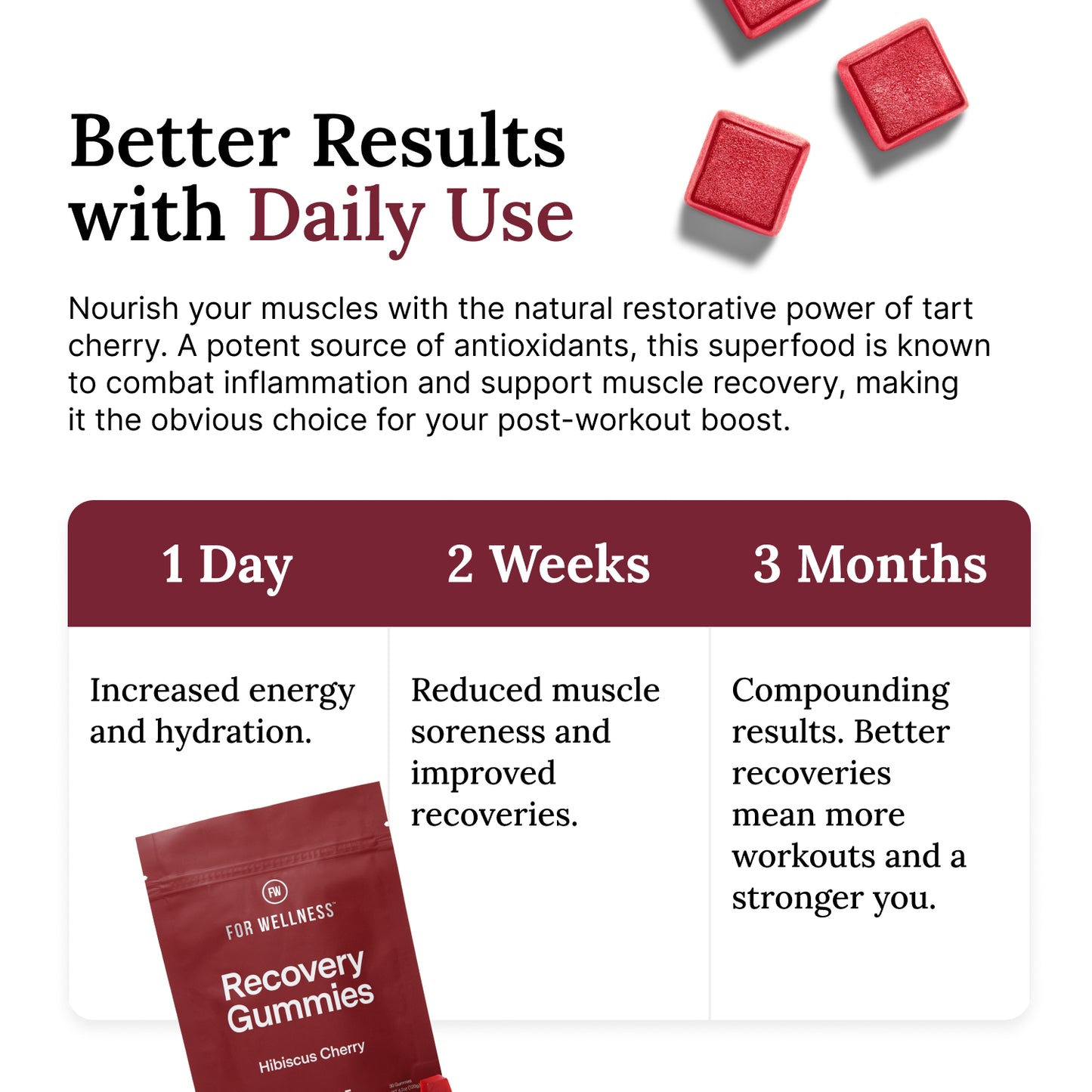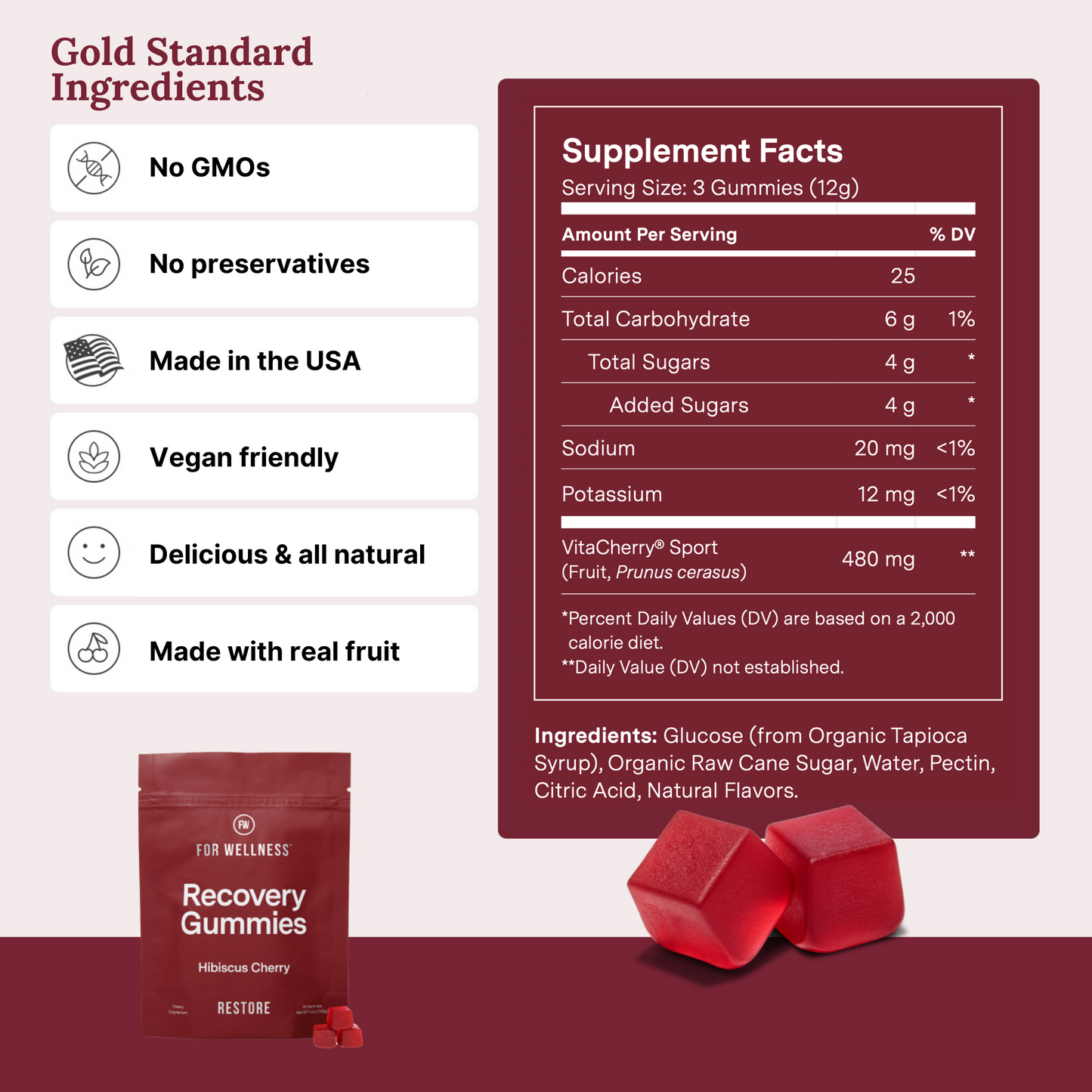You might think you're pretty good at drinking enough water each day, yet you still feel thirsty, tired, and somehow dehydrated.
The answer lies not in the quantity of water you're drinking, but in your body's ability to actually absorb and utilize it effectively. This is where electrolytes become game-changers in your hydration journey.


Recovery Gummies - Hydrate
-
Full of antioxidants and replenishes electrolytes.
-
Boosts energy with all-natural ingredients.
-
Tastes incredible with juicy blueberry flavors.
Understanding True Hydration: It's Not Just About Water
When most people think about hydration, they picture drinking glass after glass of plain water. However, true hydration involves much more than that. Your body operates like a sophisticated filtration and distribution system, where water must be properly absorbed, transported to cells, and retained at optimal levels to maintain peak function.
The hydration process begins in your digestive system, and depends on the presence of solutes, mainly sodium and sometimes glucose, which create osmotic gradients that "pull" water along with them through the intestinal wall by osmosis.
Without sufficient sodium or other solutes, water absorption is much less efficient—not because water just “passes through,” but because the osmotic gradient needed to drive absorption is reduced.
The Science Behind Electrolyte Balance
Electrolytes are minerals that carry an electric charge when dissolved in bodily fluids.
The three most crucial electrolytes for hydration are sodium, potassium, and magnesium, each playing distinct but interconnected roles in maintaining proper fluid balance throughout your body. That's why they're the hero ingredients of our Recovery Gummies Hydration.
Sodium acts as the primary regulator of fluid balance, controlling how much water your kidneys retain or excrete. It's essential for maintaining blood pressure and enabling proper nerve and muscle function. Don't be fooled by sodium's bad reputation. Adequate intake of sodium is crucial for hydration, especially for active individuals who lose significant amounts of sodium through sweat. The key is ensuring you don't overdo it.
Potassium works in partnership with sodium to maintain cellular fluid balance through the sodium-potassium pump, a cellular mechanism that actively transports these minerals across cell membranes. This process is vital for nerve transmission, muscle contraction, and heart rhythm regulation. Most Americans consume far less potassium than recommended, creating an imbalance that can significantly impact hydration efficiency.
Magnesium is involved in over 300 enzymatic reactions in the body, including those that regulate fluid balance. It helps activate the sodium-potassium pump and supports cellular energy production, making it essential for optimal hydration at the cellular level. Magnesium deficiency is surprisingly common, affecting up to 50% of the population and contributing significantly to hydration challenges.
The Role of Modern Lifestyle in Hydration Challenges
Today's lifestyle factors compound the hydration challenge in ways our ancestors never experienced. Chronic stress elevates cortisol levels, which can disrupt electrolyte balance and increase magnesium excretion. The prevalence of processed foods has dramatically increased sodium intake while simultaneously reducing potassium consumption, creating an imbalance that affects cellular hydration.
Air conditioning and heating systems create environments with lower humidity levels, increasing water loss through respiration and skin. Meanwhile, our sedentary lifestyles reduce the natural circulation that helps distribute fluids throughout the body, while intermittent high-intensity exercise creates sudden demands for electrolyte replacement that plain water cannot meet.
Sleep deprivation affects hormone production, including antidiuretic hormone (ADH), which regulates water retention. Poor sleep quality can disrupt the body's natural hydration rhythms, making it harder to maintain optimal fluid balance throughout the day.
The Solution: Strategic Electrolyte Replacement
Breaking free from the hydration paradox requires a strategic approach to electrolyte replacement that goes beyond simply adding a pinch of salt to your water.
Key Principles for Effective Hydration:
⚖️ Optimal Ratios Matter
Maintaining the right balance of sodium, potassium, and magnesium is crucial. Too much of one mineral can interfere with the absorption of others.
⏰ Timing is Everything
Rather than consuming large amounts sporadically, consistent intake throughout the day helps maintain steady cellular hydration. This is particularly important during:
- Morning wake-up (rehydrating from overnight fasting)
- Pre, during, and post-exercise periods
- Hot weather exposure
- Illness or stress periods
🎯 Individual Needs Vary
What works for a sedentary office worker will differ dramatically from the needs of an endurance athlete or someone living in a hot, humid climate.
What to Look for in Electrolyte Solutions:
- Bioavailable forms that your body can readily absorb
- Adequate potassium and magnesium (often missing in standard sports drinks)
- Convenient delivery methods that fit your lifestyle
Remember: The ideal approach involves consuming electrolytes in conjunction with fluids, allowing for optimal absorption and cellular uptake—not just dumping minerals into your system without consideration for balance and timing.
Natural Food Sources and Their Limitations
While whole foods provide excellent sources of electrolytes, relying solely on food for optimal hydration support presents practical challenges. Potassium-rich foods like bananas, avocados, and leafy greens are excellent additions to your diet, but achieving therapeutic levels through food alone can be difficult and calorie-dense.
Magnesium is found in nuts, seeds, and dark chocolate, but modern agricultural practices have depleted soil magnesium levels, reducing the mineral content of many foods. Additionally, factors like stress, certain medications, and digestive issues can interfere with magnesium absorption from food sources.
Natural sodium sources include sea salt and celery, but the amount needed for optimal hydration often exceeds what's practical to consume through food alone, particularly for active individuals. This is where targeted supplementation becomes valuable for addressing hydration effectively.
Optimizing Your Hydration Strategy
Creating an effective hydration strategy involves more than just changing what you drink—it requires a comprehensive approach that addresses lifestyle factors, timing, and individual needs.
Monitor your body's responses to different hydration approaches. Pay attention to energy levels, exercise performance, sleep quality, and overall well-being as you adjust your electrolyte intake. Keep a hydration journal noting fluid intake, electrolyte consumption, physical activity, and how you feel throughout the day.
Consider your environment and activity level when planning hydration strategies. Air travel, intense exercise, hot weather, and illness all increase electrolyte needs beyond baseline requirements. Adjust your approach accordingly, rather than maintaining a static routine regardless of circumstances.
Work with healthcare providers if you have underlying health conditions that affect fluid balance, such as kidney disease, heart conditions, or hormonal imbalances. These conditions may require modified approaches to electrolyte replacement and hydration management.
The Future of Hydration Science
Emerging research continues to reveal new insights into optimal hydration strategies. Scientists are investigating the role of other minerals like chloride and bicarbonate in cellular hydration, as well as the impact of meal timing and food combinations on electrolyte absorption.
Personalized hydration approaches based on genetic factors, gut microbiome composition, and individual metabolic patterns represent exciting frontiers in hydration science. These developments may eventually allow for truly customized hydration protocols tailored to individual physiology.
Technology is also advancing our ability to monitor hydration status in real-time, with devices that can track electrolyte levels and provide personalized recommendations for fluid and mineral intake based on current physiological status.
Breaking Free from Dehydration
The solution lies in understanding that true hydration requires more than just H2O—it demands a balanced approach that includes adequate electrolytes to support cellular water uptake and retention.
By addressing electrolyte balance through strategic supplementation and lifestyle modifications, you can finally achieve the optimal hydration your body craves. Remember that breaking free from this challenge is a process that requires patience and attention to your body's individual responses.



